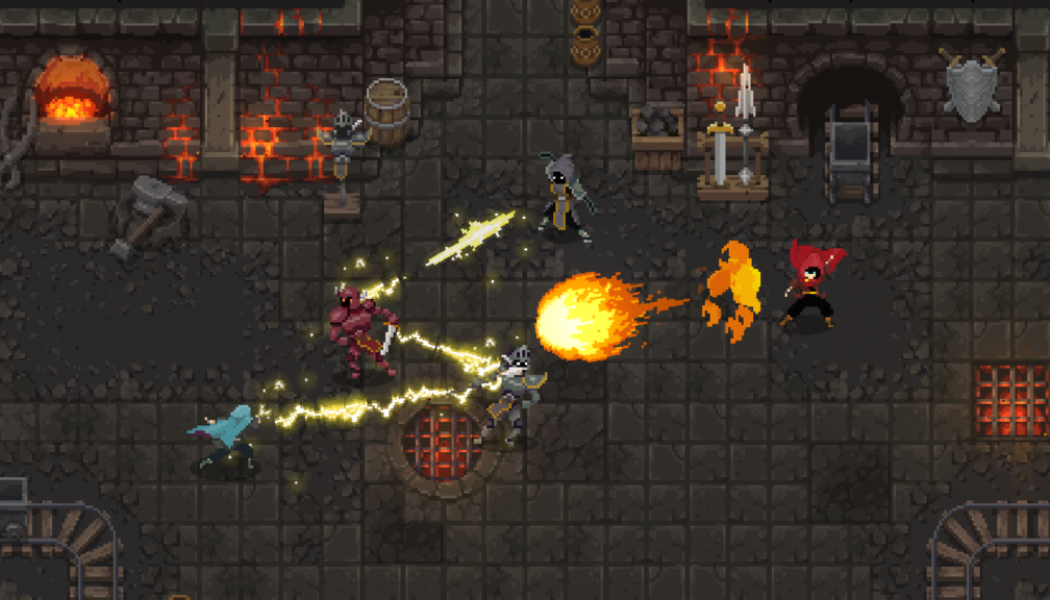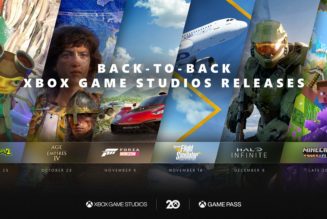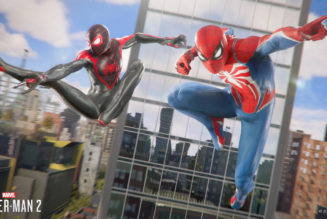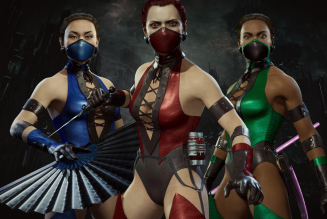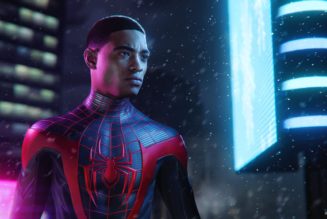
If you’re not familiar with video games, the dedication many fans have to a title like Wizard of Legend is probably a bit confusing. With a retro look and feel not unlike something you might’ve seen back in the Super Nintendo days, the magic-slinging game is a prime example of what’s known as a roguelike — a short journey through a procedurally-generated dungeon that could be completed in a few short hours, except it’ll likely take many unfamiliar gamers several days just to get through the first couple of bosses.
Roguelikes are games that are made to be played numerous times (with each playthrough varying in level design and getting the adventurer a little closer to their goal), so designing a soundtrack for them means coming up with a score that captures the emotion and tension of the first run while also not becoming aggravating by the hundredth. Dale North, Wizard of Legend’s composer, can tell you all about walking that fine line, as the minuscule team that crowdfunded and developed the title brought him on specifically for his unique (and admittedly “dorky”) vision.
More than two years after its release, Wizard of Legend continues to see its diehard following grow with support across virtually every modern console and operating system. We spoke with North to learn more about the game’s soundtrack as well as what it’s like to follow his childhood dream.
SPIN: As a roguelike, Wizard of Legend is made to be something that you play over and over again, so obviously the music is going to get listened to over and over again, as well. How is that different from creating something that’s more narrative-based that you know people will only hear once or twice as opposed to dozens or hundreds of times?
Dale North: It’s a compounded problem beyond the normal video game background music problem with a roguelike — especially with Wizard of Legend because it’s so challenging, so you have to keep returning and building. I guess that’s the case with all roguelikes, but with this one, you really do. The goal is to have background music that doesn’t feel too “background” at times, but you also don’t want to push the envelope so much that it pushes too far into the foreground and takes away from the game. With Wizard of Legend, my pitch from the beginning was to remember those beloved CD-based early games — say [on the] Sega Saturn — where I’m sure I played the game for 200 hours, but I still love the soundtrack. It was like “What worked about those soundtracks that I could channel into this that would have people really enjoy the music after hearing it that many times?” It’s not always up to me, but I hope it worked at least in some cases.
You’ve created music for such a wide variety of games in different genres and all sorts of sizes and mediums over the course of your career. How have you avoided being pigeonholed into a specific genre or type of game?
Oh, man, my biggest worry before I could really get this going full-time was that I would do one thing and people would just make the assumption that I only have one sound. I don’t think anyone that thinks of this as a full time job really wants anyone to call them for their specialty. They want to be known as versatile — or at least capable — that they can do the work across the board. I was really lucky to be able to do some weird or less-focused stuff and then have other people ask me to do all kinds of things. I mean, I’m really just honored to have the opportunity.
What’s the difference between composing something for a video game compared to something that you might work on creatively outside of the industry?
The primary thing for me is that it has to serve the game and the game’s world, story, and goals. It’s a service job writing music for video games, and the closer it gets to being fully in service of those games, the better that music is. Whereas if you’re writing something for yourself, then the goal — at least in my mind — should be expression, and the closer you get to your self-expression, and are able to say and show what you want to do with the piece, the better off it is. The goal for game music is really to be fully in service of the game, but while still trying to pull from your creative side and your self expression.
When did you realize that this is what you wanted to do as a career?
I can strangely answer this question very directly. I decided at age 7, and I remember telling my father that I was going to do this. He was like “OK…” and he did a fantastic job of supporting me musically, development-wise, and expense-wise. But really it was just from hearing the music in games that made me want to do this, and it’s been a weird road from that. I’ve never really faltered in that decision that I made when I was 7. Weirdly enough, the output jacks of game consoles — especially the Sega Genesis with its headphone port — were instrumental in me falling in love with these games. Soundtrack test modes in games — especially earlier ones — where you could go in a menu and scroll through the entire soundtrack before you’ve even finished the game were also very key. Beyond that, just being able to buy video game soundtracks — which I now have a really large collection of them — was a big thing. It was just about falling in love with the medium and viewing it as its own subset of music. I’ve always been smitten ever since I could remember.
Considering the lasting support and success of Wizard of Legend, is there anything else that you want to add either about it or your career in general?
When I think about Wizard of Legend, it’s just an overwhelming feeling of gratitude. I’m just grateful that I was included on the project, I’m grateful that it was as popular and beloved as it was, and I’m grateful now for more than two years of support from fans — not just for the music, but the game in general. It was really key in the next steps that I took in my career, and the popularity of that game really helped me step into some of the things I’m working on now — which are honestly some things that I never would have dreamed I would ever work on. I’ve profusely thanked the developers — which is a team of two guys — but if there were more, I would find every one of them and shake their hands. I’m sure I’m annoying to these two because of what’s resulted from the opportunity that they gave me and the trust they put in me. The overall feeling is just incredibly grateful and just thrilled still to even be attached to the property and the whole community behind it.
